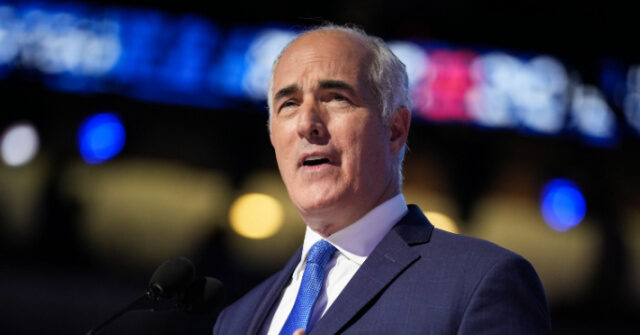
A few years ago, I bought a unique item. When I first became aware of it, I was intrigued and interested, but the price was $50 more than I was willing to pay ($450 versus $400). Wanting it, at my price or less, I kept watch over various websites looking for a sale price that matched my price point. After a number of months searching, I found a site that offered the item for $390 and I bought it.
Now, since the manufacturer has gone out of business—a victim of covid—the value of the item on the used market sometimes exceeds twice what I originally paid. Since mine is in great condition, I assume it could garner the higher price. However, I also claim that I wouldn’t now pay that price for it—I value my $850 more than the item.
At least that is what I claim. And I am not making that claim to just you, the reader, I am also making it to myself. I tell myself—repeatedly—that I value $850 more than the item, yet I haven’t sold it. A seemingly strange paradox that appears to expose a core flaw in Austrian subjective value, and economics in general. To recap: I have an item with a price greater than what I am claiming is its value to me. But I won’t sell it.
Enter Rothbard—Demonstrated Preference
If asked, I could assemble some preference ranking, ranking the options for lunch versus the money in my wallet and the alternative uses of that money. I could tell you that I rank pizza over hamburger, but then I return to my desk with a hamburger. This could lead to a question, “Jim, I thought you were getting pizza?” The questioner’s understanding of economics wouldn’t be challenged if I replied, “Yeah, I changed my mind.” No paradox here. Subjectivity is subjective, and at the whims of the individual.
Nevertheless, both the questioner and I would know that, at the lunch counter, I demonstrated my preference for hamburger over pizza, whatever I may have said. I couldn’t claim that, given the situation at the counter, I preferred pizza but bought the hamburger instead. Certainly, I could claim that, on the way back to my desk, I regretted my action and now wish I had purchased pizza, but that is only a claim of preference, one that was never demonstrated.
It doesn’t matter what I claim or list as my preference ranking, what matters is how I demonstrated that ranking at the instance under consideration. As noted by Rothbard, “But demonstrated preference only treats values as revealed through chosen action.” So we (myself included) can only speak of my values and preference ranking in context of an action at some point in time.
But I really don’t value my item at $850. I swear.
The Paradox
Consider this situation: you are on an auction website, looking at something you’d like to have. You say to yourself, and everyone nearby, “I’d really like to have that for $40, tops.” The current bid is $12, so you bid $15—a steal. You wait, watching the timer tick toward zero. Then the outbid notice pops up, noting the current bid is $16, with a minimum $17 rebid. You go with $25, but get outbid in moments. You rebid at $36 and outbid once again. Without any pause, you enter $45, because now you really want it.
Seconds tick away and it’s yours! You will soon possess for $45 that which you swore was only worth $40. Maybe, even quickly, elation from winning turns to remorse, “What was I thinking? $45 for that thing? What a waste.”
Now, you could contact the seller and say, “Look, can I just send you $4.00 and you can relist it?” That way you can get the next item in your preference rank. But you don’t.
Back to Rothbard, “The concept of demonstrated preference is simply this: that actual choice reveals, or demonstrates, a man’s preferences; that is, that his preferences are deducible from what he has chosen in action.”
All we can say is that, at the instance you bid $45, you valued your $45 less than the item in question and this is what your actions revealed. It could be that winning the auction was worth, say, $6 to you, at the moment of action. Maybe, at the instance of your last bid, you valued the bundle that included both the item and the win more than $45. Value is subjective and includes psychic value. As Rothbard puts it, “In all cases whatsoever, of course, each man will move to maximize the psychic income on his value scale, on which scale all exchangeable and unexchangeable goods are entered.” Again, no paradox here.
Today is the Given
I claim I wouldn’t today pay $850 for my item, yet I have it. Since marginal valuation is real, I can claim I do not value a second item at $850. This is an uncontroversial statement. Nevertheless, I possess one unit of it, so I do not need to purchase it. The only way I could test the current validity of my claim would be to sell the item for $850 and then buy it again for $850. This will remain untested, but we are not burdened by me already having the item when addressing what I claim is its current value to me.
But I Haven’t Sold It
I do not intend to sell this item, at least not right now. Therefore, regardless of what I say, we can conclude, both you and me, that I do value the item more than $850, when including psychic value and costs that I seem to refuse or am unable to recognize. Now, of course, I haven’t been presented with cash in hand, so my preference hasn’t been tested in that manner. Nevertheless, given what is required to sell and ship my item, the bundle that includes the item and any associated psychic value, net psychic costs, exceeds the potential $850 I haven’t been offered.
Paradox Lost
When I say it’s not worth $850 to me, don’t take my word for it, and I won’t either. We’ll both just observe my actions—or inactions—as demonstrated proof of my preference ranking.
Originally Posted at https://mises.org/






